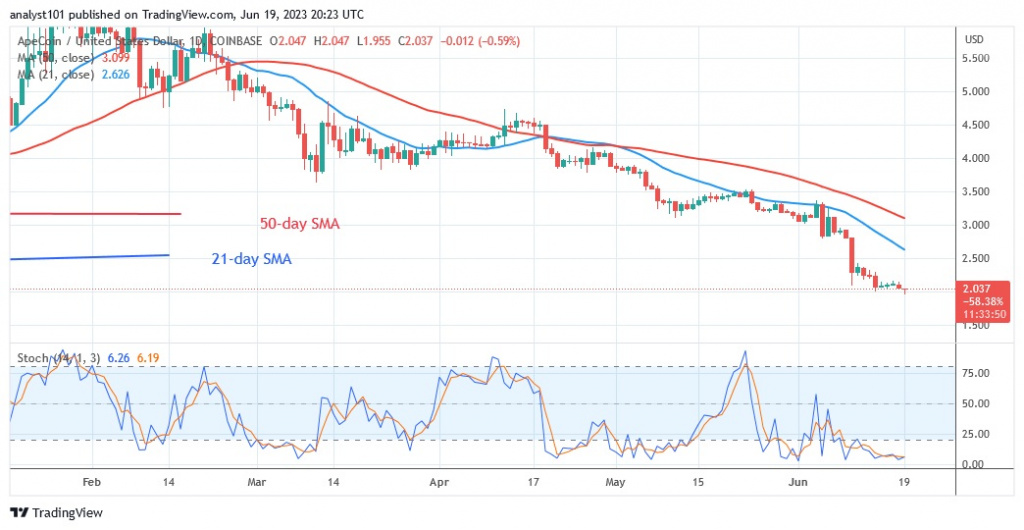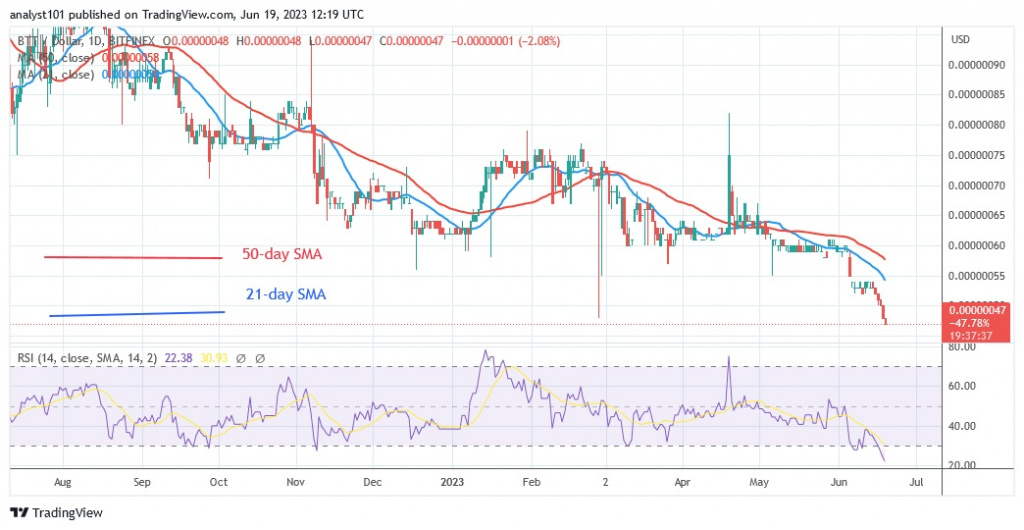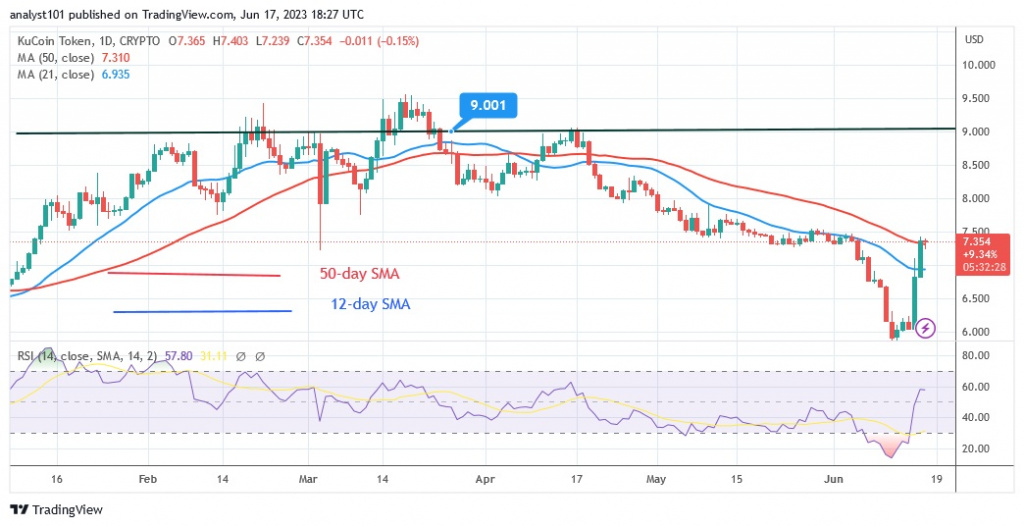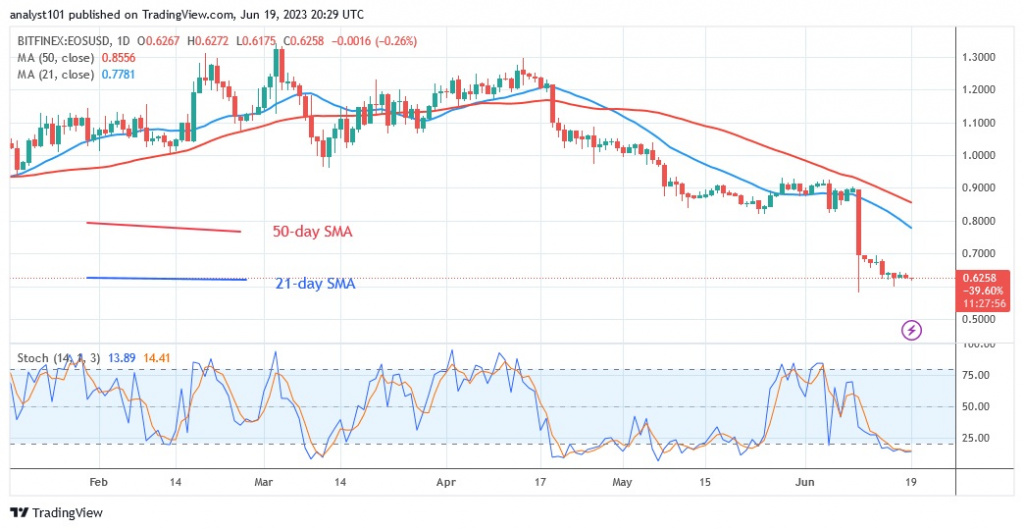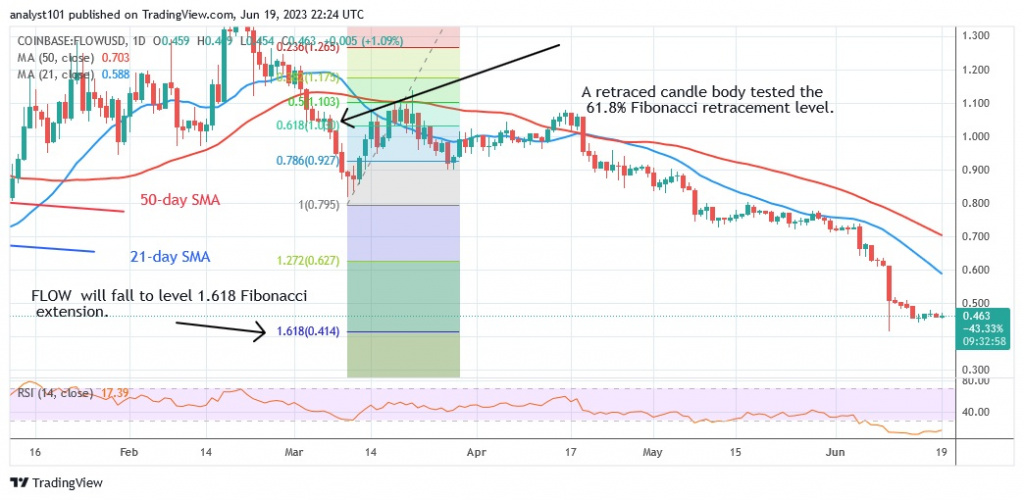Weekly Cryptocurrency Market Analysis: Altcoins Retest Bottom Price Levels As It Reaches a Bearish Limit
The cryptocurrencies listed below have fallen to the bottom of the chart.
Altcoins have reached a bearish tipping point. It is unlikely that the price decline will continue. Cryptocurrencies are heavily oversold in the market. I will briefly discuss some of these cryptocurrencies.
ApeCoin
ApeCoin (APE) has fallen below its moving average lines. The cryptocurrency has dropped significantly, falling below the historical price level of November 14, 2022. After hitting a low of $2.61 in November 2022, the altcoin resumed its uptrend. Today, APE has fallen to $1.99 and resumed its consolidation above the current support. The cryptocurrency asset is heavily oversold on the market. It is unlikely that the price decline will continue. Buyers are likely to emerge in the oversold area of the market. APE is in the oversold area of the daily stochastic, below level 20. The cryptocurrency, which has the following characteristics, has underperformed:
Current price: $2.06
Market capitalization: $2,076,807,198
Trading volume: $79M
7-day gain/loss: 12.26%
BitTorrent(New)
BitTorrent (BTT) is in a downtrend and approaching the oversold area of the market. Selling pressure has been tremendous and the price has reached a low of $0.00000046. BTT has fallen to a Relative Strength Index of 22 for the period 14. The price indicator has indicated that the market is oversold. This indicates that selling pressure has reached a bearish limit. BTT has crossed the oversold level on the market. It is the cryptocurrency with the second worst performance. It has the following characteristics:
Current price: $0.000004717
Market capitalization: $467,025,192
Trading volume: $15M
7-day gain/loss: $11.98%
KuCoin Token
The price of KuCoin (KCS) is falling and is in a sideways trend. The sideways trend started on February 21, when the altcoin reached a high of $9.42. Buyers were unable to sustain the bullish momentum above the recent high, resulting in a sideways trend. Following the rangebound move, KCS has now fallen to current support. At the time of writing, the altcoin was trading at $6.38. The altcoin is currently trading above its current support. For the period 14, the Relative Strength Index is at 50, indicating that supply and demand are in balance. The characteristics of the cryptocurrency with the third worst performance are as follows.
Current price: $6.41
Market capitalization: $1,090,133,337
Trading volume: $4M
7-day gain/loss: 8.63%
EOS
EOS (EOS) is falling below its moving average lines. In the last price action, the cryptocurrency asset rose to a high of $1.30. As the market was overbought, the altcoin was unable to rise further. On June 10, the altcoin reached a low of $0.58. The cryptocurrency is now consolidating above the current support level. The coin is currently trading in the oversold zone of the market. Moreover, EOS has reached a bearish limit. It is now the fourth worst cryptocurrency on the market. It has the following characteristics:
Current price: $0.6272
Market capitalization: $689,763,014
Trading volume: $94M
7-day gain/loss: 7.78%
Flow
Flow’s share price (FLOW) has dropped significantly, falling below historical levels on December 31, 2022. On June 10, bearish momentum broke through the low of $0.64 and reached a new low of $0.41. The altcoin has consolidated above the current support since June 10. The cryptocurrency asset is heavily oversold in the market. Selling pressure has reached a bottom. For the period 14, FLOW is at a Relative Strength Index of 16. The fifth worst cryptocurrency is FLOW. It has the following characteristics:
Current price: $0.4588
Market capitalization: $663,530,323
Trading volume: $19M
7-day gain/loss: 7.69%
Disclaimer. This analysis and forecast are the personal opinions of the author and are not a recommendation to buy or sell cryptocurrency and should not be viewed as an endorsement by CoinIdol. Readers should do their own research before investing in funds.
Source: Read Full Article


